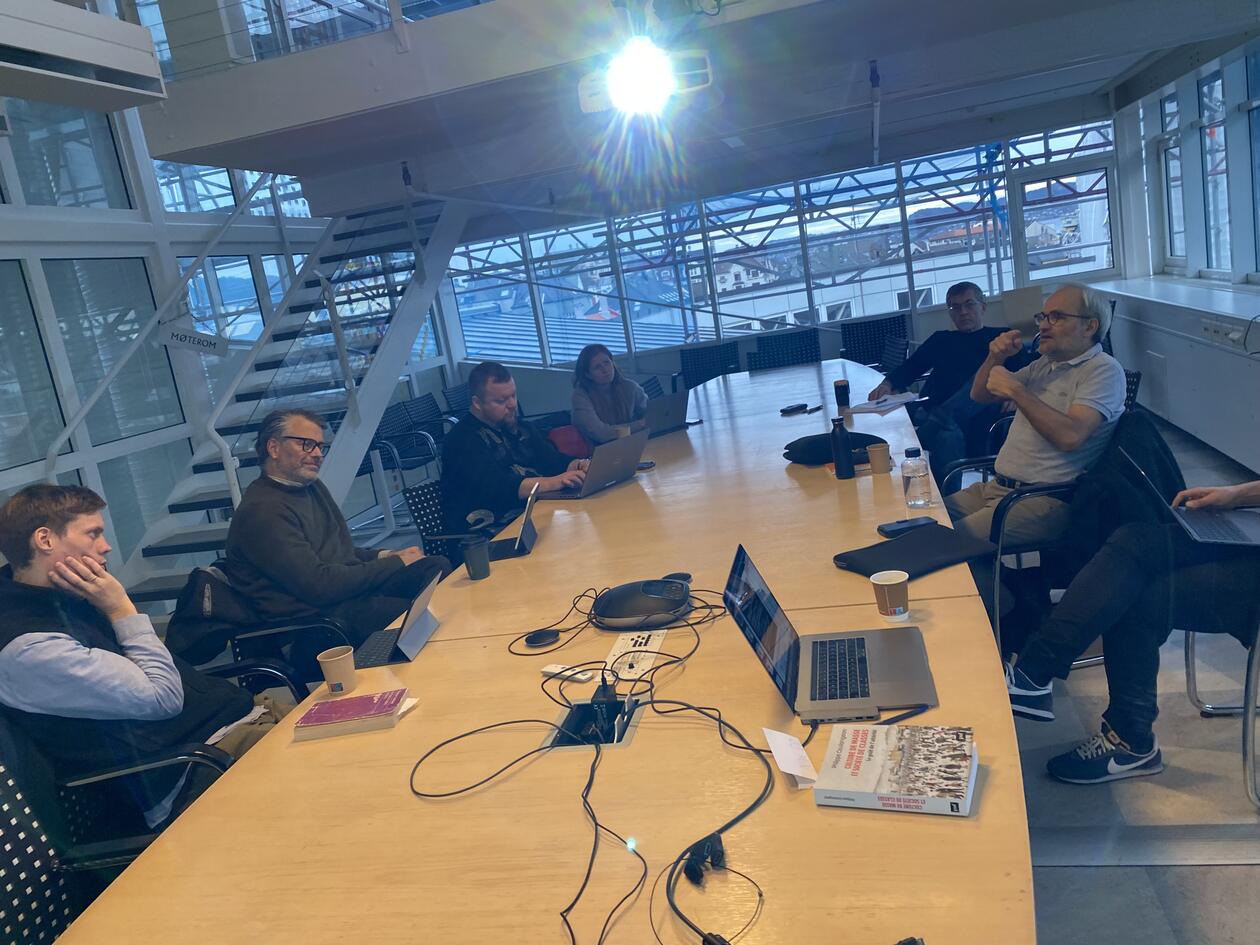Workshop: Changing Classes, Cultural and Political Lifestyles
Unveiling Dynamics of Change: Insights from the Workshop on Culture, Inequality, and Democracy

Main content
The network for culture, inequality, and democracy recently organized a workshop addressing the evolving cultural and political lifestyles of social classes. This dynamic event featured contributions from notable scholars such as Philippe Coulangeon, Johs. Hjellbrekke, Jan Fredrik Hovden, Magne Flemmen, and network fellows. The workshop, held in conjunction with Coulangeon's guest researcher stay, provided a platform for in-depth discussions on ongoing research, particularly focusing on themes explored in Coulangeon's book "Culture de masse et société de classes."
Here's what they talked about:
"From cultural diversity to elite-based eclecticism in musical tastes": Philippe Coulangeon (CNRS/Sciences Po) demonstrated how previous work arguing for reduced class differences in people's musical tastes (e.g. Peterson & Kern 1996, Goldthorpe & Chan 2004) appears unlikely when one does detailed analysis of people's use of music streaming services and combines that with detailed background data. If, for example, both the upper middle class and the working class in France listen to rap, they listen to very different artists. Research has thus, according to Coulangeon, focused too much on rough categories to capture the large class differences that actually exist.
Studying cultural change using CSA: Johs. Hjellbrekke (UiB) showed how class-specific analysis (CSA), a relatively new method within geometric data analysis (GDA), invented by Birgitte Le Roux, can be used to study historical changes in people's cultural habits and their relationship to social class.
"Changing class structuring and lifestyles of Bergen students 1998-2020": Jan Fredrik Hovden (UiB) presented changes over the past twenty years in students' class-based recruitment to the educations and their cultural lifestyles. He finds that the social differences have increased, and that the social differences in cultural use are fairly stable, despite major technological and educational changes.
"Green tastes in social space: Environmentalism, cultural legitimacy, and the ascetic disposition": Magne Flemmen (UiO) showed analyzes of differences in people's lifestyles and political stance linked to the green shift. He finds clear class differences, especially linked to cultural capital, and to a lesser extent to capital volume. The economic upper and middle classes are less willing to make changes in their lifestyles than the cultural ones.
"Cultural correlates of the political divide among the working class in contemporary Finland": Jarmo Kallunki (Uni. Tampere) discussed cultural features with the Finnish working class, and finds three groupings within it: "Indifferents" who have few cultural interests and characterized by a lack of resources , "Finns Party supporters" with the clear ideological (and elite-critical) relationship to culture, and "Social Democrat supporters" who are most culture-friendly.
"The class structuring of children's organized lifestyles": Andreas Roaldsnes (UiB) spoke from his PhD project about children in Bergen's classed lifestyles, where he finds large class differences, but also that the effect of class plays a varying role at different times in children's lives.
